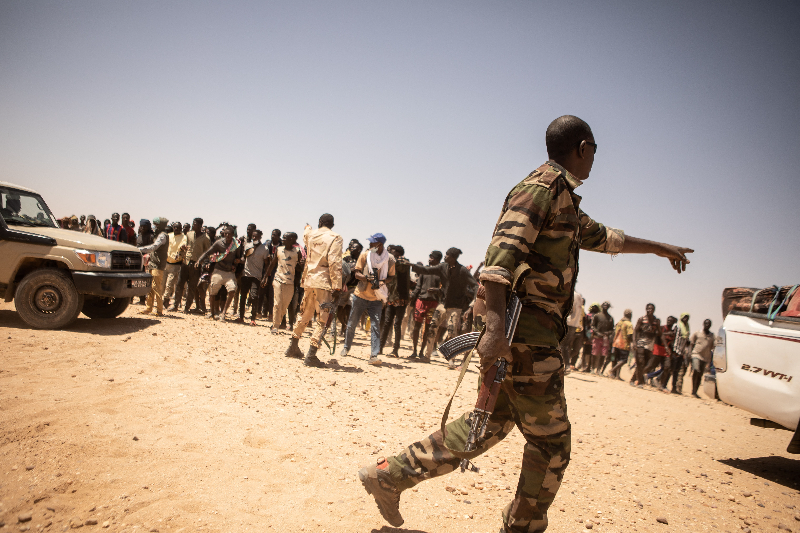
over 300 migrants detained in libyan desert by military forces
On Monday, Libyan military officials announced that they had captured hundreds of migrants who were traveling across the country’s vast desert in the hopes of eventually crossing the Mediterranean Sea to reach Europe in search of a better life.
More than 300 migrants were apprehended and transferred to authorities by the patrolling commanders of the 444 Brigade, a strong paramilitary organization that functions under the Libyan army’s authority, according to a statement.
In a Facebook post, the group criticized human trafficking and smuggling and promised to keep up patrols to block smuggling routes. It shared pictures of what looked to be migrants sitting in rows in front of disguised and armed militants, as well as satellite photos of the desert.
The concerns stem from the fact that Libya continues to be a major entry point for men, women and children traveling from the Middle East and Africa to Europe. Many use smugglers to help them cross dangerous deserts and waterways as they flee conflict or poverty. This year, over 38,000 people have fled Libya to Italy and Malta as per the United Nations Refugee Agency or UNHCR.
Keep Reading
European authorities have made it a top goal to persuade North African nations to keep migrants from reaching the sea because the overcrowded boats that traffickers and refugees use frequently capsize. However, in contrast to Morocco and Tunisia where tens of thousands of migrants also try to enter on their way to the southern European coasts, conflict between opposing governments in Libya has made collaborations on migration control even more difficult.
Although Libya’s official news agency LANA recorded more than 2,000 arrests in July, the country rarely reports migrant apprehensions.
After longtime tyrant Moammar Gadhafi was overthrown by a rebellion supported by NATO, the oil rich nation descended into chaos. Since then, the nation has been split between two regimes one in the east and one in the west supported by foreign powers and militias. The political unrest has long helped human smugglers.
In July, Volker Türk who is the United Nations High Commissioner for Human Rights, claimed that migrants in the nation had endured malnutrition, forced labor and torture while in detention.









